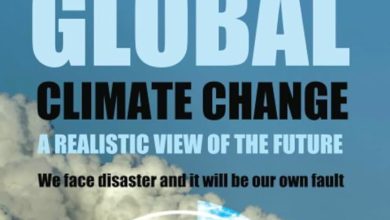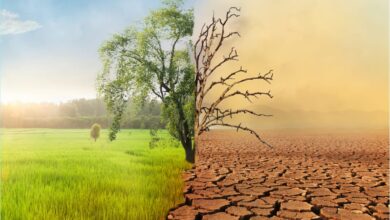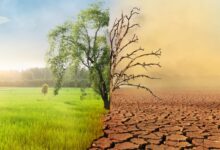
By Ezekiel Nyanfor
Climate change is a global problem – if it is not tackled everywhere, it will affect everyone. The modern world is also incredibly intertwined: products – and resultant emissions – made in one place are actually consumed in another, while sharing green technologies across boundaries also help other countries reduce their emission.
Africa has 54 countries. It is now on the path to modernization. If Africa with its growing population doesn’t put climate change at the center of its development agenda, she will end will being the world’s largest emitter of green house gases from now to 2030.

According to a publication of National Geographic title: “Most countries aren’t hitting 2030 climate goals, and everyone will pay the price”, written by Stephen Leahy (Nov. 5, 2019) says ” The majority of the carbon emission reduction pledges for 2030 that 184 countries made under the Paries Agreement aren’t nearly enough to keep global warming well below 3.6 degrees Fahrenheit ( 2 degrees Celsius). Some countries won’t achieve their pledges, and some of the world’s largest carbon emitters will continue to increase their emissions, according to a panel of the world-class Climate Scientists.

However, the report’s analysis of the 184 pledges for the 2030 found that almost 75 percent were insufficient. In fact, the world’s first and fourth biggest emitters, China and India, will have higher emissions in 2030. The USA is the second largest and its pledge is too low. It’s also in doubt, given the Trump Administration’s withdrawal from the record. Russia , the fifth largest emitter, hasn’t even bothered to make a pledge. Only the European Union, the third largest emitter, pledge to reduce emissions by at least 40 percent by 2050 and is expected to reach a near 60 percent reduction. ” We’re already experiencing big impacts from Climate change. Waiting to act just locks us into higher temperatures and worsening impacts” says Sir Robert Watson, former Chair of the Intergovernmental Panel on Climate Change and Co – author of the report that closely examined the 184 voluntary pledges under the Paries Agreement. The beauty of this report is that it is very easy to see which countries are leading and which are lagging.
The report is published by the Universal Ecological Fund, a nonprofit that focuses on providing accessible information on Climate Science in the hopes of inspiring people to push for Climate Action. According to the report , it is clearly seen that policies and pledges are not enough to hold governments accountable. Reason is that , policy is the outlines of what a government is going to do and what it can achieve for the society as a whole, it also mean that policies are only documents and not laws. Let look at laws; they are set standards, principles, and procedures that MUST be followed in society. Law is mainly made for implementing JUSTICE in the society.
If present leaders (governments) fail to meet the target set at the Paries Agreement, who do we hold? What happens when a new government comes in- will it be held accountable for past leaders actions?
Climate Laws are powerful tool to hold governments accountable for damages cost by their inaction. But what if governments fail to create them (Climate Laws) in the first place? In this case, courts are proving to be a powerful mechanism to force governments to take action. Citizens must take Climate lawsuits against governments who will fail to make Climate Inaction illegal on a legal obligations of the government to exercise a duty of care to their citizens. Citizens everywhere need to become more politically involved and policymakers need to make dramatic improvement.
My fellow global citizens, note that the power of the people is stronger then the people in power. We have all it takes to make Climate Inaction illegal in our respective countries.
About the author:







